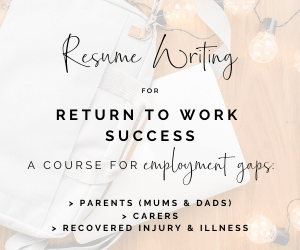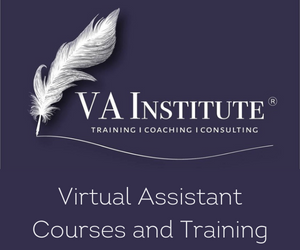For any mums with work at home jobs (first, kudos to you for being at the frontier of the global remote work culture!), you are painfully well-aware of the unique challenges to building a remote career path. While it is becoming increasingly accepted, especially in a more entrepreneurial environment, hiring managers can be more picky (or demand certain qualities) and risk-averse when it comes to recruiting remote workers, making the competition more fierce.
Make your resume stand out
Furthermore, you might find it challenging to be recognised, appreciated, and promoted in your role. This remote resource marketplace is unchartered waters but here are some pointers to make you and your resume get ahead in the queue.
#1. Pay attention to the ‘key words’
Just like most content on the internet, you should think about the ‘keywords’ that the hiring manager might search for to filter out the desirable candidates, whether automatically or manually.
For instance, if you look at many of the LinkedIn job posts, they will have a column on the right titled “Skills.” This is a great example of how hiring managers or recruiters filter through hundreds or thousands of applications to review the ones that are more likely to be relevant to save time. Make sure you do some research – look at a few different job posts for similar roles and identify repeatedly used words, whether that be in the experience required or skills using specific tools, and make sure to include them in your resume (as well as any professional online profiles you have visible).
When it comes to remote work, make sure that you also include language highlighting soft skills relevant to working remotely such as ‘managing a remote team’ and ‘experience coordinating with multinational resources.’
This way, you will show up on their search and survive their filtering process to make sure that you are never overlooked!
#2. Get that degree
Since hiring managers tend to be slightly more risk-averse, they might overly prefer candidates with more degrees than less; they would assume someone with fancier wall of credentials might guarantee results and be more independent/proactive.
While references or recommendations and making your experience sound as relevant as possible all could help overcome this obstacle, you might want to upskill yourself by simply obtaining the qualifications deemed most desirable for the role. It’s so convenient and affordable nowadays to expand your knowledge and get certificates or degrees to propel your career.
You can choose among hundreds of TAFE courses in WA available online or on campus to find a program that will allow you to study at your own pace and get the type of qualification you need.
#3. Add a personalised note to your application
If you know the name of the hiring manager or recruiter, do some (innocent) online stalking to see what they are like, what their career paths have been like, etc. and add a personal note directed to them to establish some connection.
It doesn’t have to be too dramatic; you can simply add a sentence or two that reads something like, “I see that you’ve been in this role for over 12 years. I’d love to get a chance to learn more about what you find most enjoyable about this field and the company.”
Make sure to add a summary about who you are and what your goals are in the note as well so catchy, memorable bio is shared with the recruiter seeing your application.
#4. Build a portfolio
This is a game changer – having a portfolio. You don’t need to be a designer to have a portfolio. Document your work regularly – if you make a beautiful presentation, make sure you save it somewhere (with sensitive corporate information deleted, of course). If you write an article that gets published, keep that link and content stored safe somewhere in one place.
Any document or deliverable you can share with the recruiter that would act as tangible evidence of your skillset will only increase your chances and make your application unforgettable.






